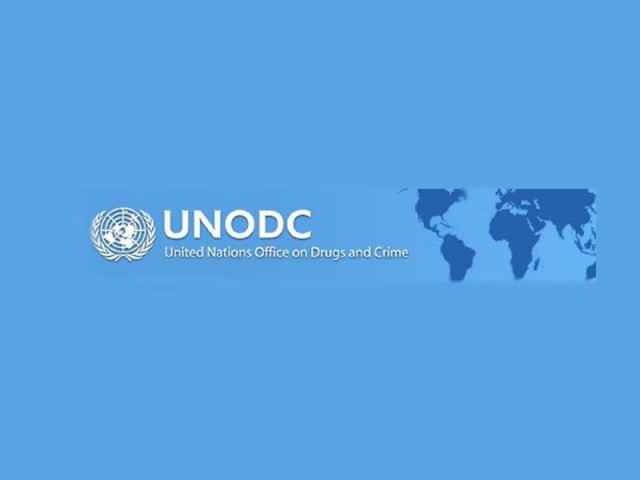High resolve: New UN drug ‘czar’ offers to help Pakistan battle corruption
Cesar Guedes feels similar efforts during his last posting in Bolivia can be copied here.

The United Nations Office on Drugs and Crime (UNODC) Pakistan and its new boss, Cesar Guedes, are willing to support the Sharif’s government in its anti-corruption efforts.
Days before Nawaz Sharif took oath as Pakistan’s new prime minister, he announced that the Pakistan Muslim League-Nawaz government will not tolerate corruption and will hold the corrupt accountable.
If the new federal government is serious about weeding out corruption, it could find an unlikely ally in a United Nations (UN) agency working in Pakistan.
The United Nations Office on Drugs and Crime (UNODC) Pakistan and its new boss, Cesar Guedes, are willing to support the Sharif’s government in its anti-corruption efforts.
Guedes, who took charge as the UNODC Pakistan country representative on June 3, previously worked as the UNODC representative in Bolivia, a country where, Guedes said, he and his staff helped the government rally against endemic corruption.
The UNODC has mandate over three international conventions, Guedes said. One of these is the UN Convention against Corruption (UNCAC).
Pakistan, like the Latin American nation, is a signatory of the UNCAC, and corruption, especially in the public sector, is a major challenge to its prosperity.

In Bolivia, the government took a political decision to tackle systemic corruption, Guedes said. The UNODC helped the government establish the Bolivian Ministry for Institutional Transparency and Fight against Corruption while also passing an anti-corruption law which includes witness protection clauses. It also trained judges and prosecutors in anti-corruption practices.
Guedes said that the democratic transition that took place in Pakistan following the May 11 general elections sent a positive message to the world community. He thinks a UN-Pakistan anti-corruption collaboration would benefit the public.
“I’m new, the government is new,” he said. “It would be a win-win opportunity for us to work together for the good of the Pakistani people.”
Meanwhile, the UNODC has been providing technical assistance to Pakistan in the areas of border management, criminal justice, drug demand reduction and, most importantly, controlling illicit trafficking.
Guedes said Pakistan is in the “eye of the storm” due to being a transit country in the international trade of illicit drugs.
A 2009 UNODC report on Afghanistan’s drug trade estimated that around 40 per cent of Afghanistan’s heroin and 30 per cent of its opium pass through Pakistan to the rest of the world each year. The cross-border trafficking is locally valued between $910 million and $1.2 billion, according to the International Narcotics Control Board’s 2012 annual report.
The money creates its own problems.
“The money that is generated by drug trafficking often supports other illicit activities such as human smuggling, precursors smuggling and violence,” Guedes said.
The drug transit trade also puts Pakistan at the risk of becoming a consumer country, he said.
Around 6.4 million Pakistanis between the ages of 15 and 64 used drugs in the past 12 months and 4.1 million individuals are thought to be drug dependent, according to the Drug Use in Pakistan 2013 report prepared by UNODC, Pakistan Bureau of Statistics and Ministry of Narcotics Control.
The use of synthetic drugs, smuggling of precursor chemicals that can be used to make drugs and prescription drug addiction are other major challenges facing Pakistan.
In addition to collaborating with government agencies, Guedes said civil society must also be involved to work against transnational organised crime, such human trafficking and drug addiction, because a lot of people fall prey to such crimes because of ignorance.
“With help from civil society, people could be sensitised on these issues,” he said.
They could be told to say “no” when someone lures them to go abroad on a fantastic salary and they could be alerted to the risks of falling prey to drug addiction, Guedes said.
He said Afghanistan is the key concern for Pakistan in terms of illicit trafficking, but recommended that instead of stepping back and becoming overprotective, the two countries should collaborate to prevent misuse of their borders.
Published in The Express Tribune, June 15th, 2013.



















COMMENTS
Comments are moderated and generally will be posted if they are on-topic and not abusive.
For more information, please see our Comments FAQ